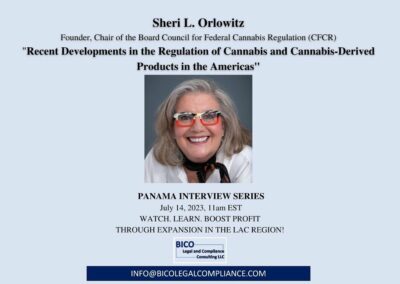The digital age has transformed traditional business models. The rapid rise of e-commerce and online retailing has empowered consumers to bypass traditional intermediaries and purchase products directly from manufacturers.
This shift has led to the rise of new market entrants, including both startups and established companies diversifying their operations, and has driven the growth of direct-to-consumer (DTC) models.
Manufacturers, in particular, are increasingly able to vertically integrate their operations, bringing together design, production, distribution, and retail under one roof. This integration allows businesses to streamline operations, reduce overhead costs, and respond more quickly to changing consumer demands.
However, the rise of e-commerce is not without its challenges. While the benefits of e-commerce and online retail are evident, businesses must also contend with a complex and ever-evolving landscape of legal and regulatory issues.
What Legal and Regulatory Challenges Do E-Commerce Businesses Face?
As e-commerce online shops grow globally, businesses must contend with a range of legal frameworks that vary from jurisdiction to jurisdiction. These legal frameworks govern areas such as data privacy, intellectual property rights, consumer protection, taxation, and international trade, all of which can significantly affect e-commerce operations.
Companies must be aware of the different laws that apply to their operations, whether they’re selling to local or international customers, to ensure compliance and avoid potential penalties. This is why having an experienced attorney to handle the complexities of e-commerce is highly beneficial.
Some key issues businesses must address include:
- Consumer rights
- Product liability
- Cross-border data flows
- And more
As regulatory bodies continue to update their approaches to online business, the challenge of staying ahead of new regulations—such as GDPR in Europe or evolving tax laws— becomes even more important for businesses looking to thrive in e-commerce.
To protect their interests, businesses must actively engage in legal risk management and adopt comprehensive strategies that address the nuances of operating in a global digital economy.
As the regulatory landscape becomes increasingly intricate, businesses must prioritize legal compliance to avoid reputational damage, financial loss, or legal penalties.
What Regulations Must Florida Businesses Know?
The Campbell Law Group’s Advertising, E-Commerce & Regulatory Compliance Practice Group (AERC Group) is here to guide you through legal compliance, helping minimize risks while optimizing your e-commerce business operations for growth and regulatory compliance. Florida businesses must be aware of specific state and federal regulations to operate legally and successfully in the digital marketplace.
Website Compliance
In Florida, businesses operating online retail sites must comply with the disclosure requirements set forth in the Ley de prácticas comerciales engañosas y desleales de Florida (FDUTPA). This act mandates that companies provide clear and conspicuous information about the business, the products or services they offer, and the terms and conditions of sale. Transparency in online transactions fosters trust and protects consumers, which is essential for businesses that rely on e-commerce to drive revenue.
Florida’s Consumer Protection Law requires businesses to maintain reasonable data security measures to safeguard consumers’ personal information. For e-commerce websites collecting sensitive data such as credit card details or Social Security numbers, it is crucial to implement appropriate safeguards for storing, transmitting, and securing this information. Failure to do so can result in penalties and damage a business’s reputation.
Intellectual Property Rights
For e-commerce businesses in Florida, protecting your propiedad intelectual—such as trademarks, copyrights, and patents—is essential. Without these protections, your brand and products are vulnerable to infringement, which could weaken your competitive edge in the market. Florida’s Trademark Act and the federal Lanham Act provide legal avenues for registering and protecting your brand assets.
It’s equally important to respect the intellectual property of others. When managing e-commerce websites, businesses must ensure that their content, product descriptions, and marketing materials do not infringe upon third-party trademarks, copyrights, or patents. Any violation can lead to legal action, fines, and the potential loss of consumer trust.
Contracts and Transactions
Each e-commerce website must have clear, enforceable terms of service and privacy policies. These documents serve as a legal foundation, establishing the rules and guidelines that govern transactions, data collection, and user interactions. In Florida, the Uniform Computer Information Transactions Act (UCITA) regulates certain aspects of these agreements, making it crucial for businesses to ensure that they comply with all electronic contracts and transaction provisions.
Just like traditional brick-and-mortar stores, e-commerce businesses in Florida must adhere to sales tax laws. The state requires businesses to collect and remit sales tax on applicable transactions. As the e-commerce landscape evolves, particularly with online shops expanding to interstate and international markets, staying up-to-date with Florida’s sales tax regulations is crucial to avoid penalties. Compliance is especially important when selling across state lines, as different states have different requirements for e-commerce businesses.
Advertising and Marketing
Florida’s Deceptive and Unfair Trade Practices Act (FDUTPA) prohibits unfair, deceptive, or misleading advertising practices. This includes making false or unsubstantiated claims about products or services and failing to disclose material information that could influence a consumer’s purchasing decision. For e-commerce marketing, making sure that all product descriptions, advertisements, and promotions are truthful and transparent is key to avoiding legal issues and building customer trust. In addition to state-level regulations, businesses must also comply with federal laws that govern commercial email marketing.
En CAN-SPAM Act (and Florida’s Electronic Mail Communications Act) regulates the use of commercial email messages. Businesses must adhere to opt-in requirements, provide clear unsubscribe mechanisms, and avoid using deceptive subject lines or false header information in their email campaigns. These laws protect consumers from unsolicited and potentially misleading messages and help ensure that e-commerce businesses can engage in ethical, compliant e-commerce marketing practices.
Key Compliance Areas for Florida E-Commerce Businesses
In addition to the specific regulations mentioned above, Florida businesses engaged in online retail must consider the following compliance issues to operate smoothly:
- Data Privacy Regulations: Complying with data privacy laws like the GDPR for businesses handling European customers or the CCPA (California Consumer Privacy Act) for those with customers in California.
- Cross-Border Transactions: Managing tax obligations for international trade, especially as it pertains to cross-border data flows and customs regulations, is vital for businesses operating globally.
- Online Payment Security: Ensuring that e-commerce websites follow Payment Card Industry Data Security Standards (PCI DSS) when handling credit card transactions protects both the business and consumers.
As the e-commerce industry continues to evolve, businesses in Florida need to stay informed about these regulations and adopt compliance measures that align with both state and federal requirements. By doing so, businesses can protect their interests, avoid legal penalties, and support long-term growth in the competitive online marketplace.
The Campbell Law Group is here to help Florida-based businesses overcome these complexities and build a solid foundation for success in the e-commerce business space.
Expert Legal Support from Campbell Law Group’s AERC Group for E-Commerce and Regulatory Compliance
The Campbell Law Group’s Advertising, E-Commerce & Regulatory Compliance Practice Group (AERC Group) is committed to helping your manufacturing business or brand navigate the legal complexities of the digital marketplace. By minimizing legal and regulatory risks associated with e-commerce transactions, we can help streamline your operations and drive profitability.
Led by Mr. Anthony Robinson, ESQ., the AERC Group offers comprehensive legal and regulatory risk management strategies in several key areas critical to the success of your e-commerce business.
Key Areas of Expertise
- Commercial Contracts: We assist with the negotiation and drafting of essential agreements with customers, suppliers, manufacturers, distributors, and other e-commerce counterparts. This includes website terms of sale, privacy policies, and contracts with advertisers, affiliate networks, and social influencers.
- Federal and State Consumer Protection Laws: Our team helps ensure compliance with both federal and state laws affecting e-commerce and traditional retail transactions. We provide guidance on FDA y FTC rules concerning product promotions, such as website content, product labeling, and terms of use. We also handle matters related to the Restore Online Shoppers’ Confidence Act (ROSCA), the FTC’s Endorsement and Testimonial Guides, and the Telephone Consumer Protection Act (TCPA), among others.
- Business Litigation and Risk Management: We offer specialist legal services in litigios comerciales, including matters such as false advertising, product disparagement, trademark infringement, and trade secret misappropriation. We are also skilled in negotiating and managing risks associated with e-commerce disputes.
- Defending Regulatory Investigations: Our team has extensive experience defending clients in civil investigative demands and enforcement actions initiated by the FTC and state attorneys general.
- Intellectual Property Protection: We offer strategic advice on propiedad intelectual and brand management, helping businesses protect their trademarks, copyrights, and patents. We manage trademark registrations before the USPTO and defend against trademark infringement claims in both federal courts and the TTAB (Trademark Trial and Appeal Board). We also handle UDRP domain transfer actions, copyright infringement, and DMCA takedown notices.
- Data Privacy and Security: We ensure your business complies with data privacy regulations such as the GDPR, CCPA, and the laws governing email, SMS, and telemarketing communications. This is crucial for businesses engaging in online retail and e-commerce marketing.
- Regulatory Compliance for Consumer-Packaged Goods: We provide guidance on the importation, exportation, and distribution of consumer-packaged goods, focusing on regulatory compliance throughout the Americas.
Notable Achievements by Mr. Anthony Robinson
Mr. Anthony Robinson, Esq., has an impressive track record of successfully defending clients and securing favorable outcomes in the e-commerce and consumer protection sectors. Some key results include:
- Successfully defended a vertically integrated manufacturer and brand owner of powdered dietary supplements against consumer protection claims under Section 28-3904 of the D.C. Code, arguing that the alleged misrepresentation of underfilled bottles did not materially influence consumer purchasing decisions.
- Secured an import permit from the USDA for a Brazilian manufacturer of whey protein sports nutrition products, overcoming hurdles with Brazilian regulatory agencies to establish a self-certifying origin process for the product’s key ingredients.
- Negotiated a Domain Name Transfer Agreement that enabled a manufacturer of dietary supplements to reclaim rights to its trademarked domains and social media accounts, which a competitor had illegally used.
- Defended a contract manufacturer before the EEOC in a discrimination case, successfully resolving allegations of disability, sex, and pregnancy discrimination.
- Drafted and negotiated a Manufacturing and Supply Agreement for a nutrition supplement company, collaborating with a global multi-level marketing corporation that markets sports nutrition and personal care products.
- Successfully prosecuted a trademark infringement case in the Southern District of Florida against Market America, Inc., for the unauthorized use of the Champion Performance® mark owned by Nature’s Product Inc.
- Managed due diligence for WM Partners in its acquisition of several health and wellness brands, including Vitamin Research Products and Natural Vitality.
- Provided guidance to Kaneka Americas Holding, Inc. on FDA and FTC compliance regarding the label claims and product promotion for its Floradapt probiotic brand.
- Achieved trademark registration for Vitargo in Colombia and advised the company on e-commerce marketing and regulatory risks related to new campaigns.
- Managed an international trademark portfolio for WM Partners LP, ensuring robust protection of client brands across multiple jurisdictions.
- As Chief Compliance Officer of WM Partners, oversaw SEC and state-level compliance issues, focusing on data security and privacy regulations, including TCPA, CAN-SPAM, FTC rules, HIPAA, CCPA, and GDPR.
Mr. Robinson’s experience and strategic insight into e-commerce legal matters, particularly in consumer protection, intellectual property, and data privacy, make him an invaluable partner for businesses navigating today’s complex digital landscape.
He leads a skilled team that includes Regina M. Campbell, Esq., Daniel J. DeWitt, Esq., and Ángel López, Esq., each of whom brings deep expertise in their respective areas.
Whether you are an emerging e-commerce business or an established brand, Mr. Robinson and the Campbell Law Group are committed to ensuring your success and protecting your business interests.
Póngase en contacto con nosotros today to schedule a consultation and take the first step toward protecting your business. Let us help you overcome the complexities of the advertising and e-commerce landscape so you can focus on what you do best-growing your business.
Frequently Asked Questions for E-Commerce Businesses in Florida
What legal considerations should Florida businesses keep in mind when launching an e-commerce website?
E-commerce businesses must focus on several critical legal areas, including commercial contracts, data privacy, consumer protection laws, and property advertising regulations. Maintaining compliance with federal and state laws, such as the FTC’s rules on product labeling and the TCPA, is essential to avoid legal penalties.
What are the main consumer protection laws e-commerce businesses need to comply with?
E-commerce businesses must comply with federal and state consumer protection laws that govern online transactions, such as ROSCA, FTC rules on advertising and product labeling, and the TCPA. These laws ensure that businesses provide clear, truthful information to consumers and maintain fair and transparent business practices.
How can e-commerce businesses manage risks associated with online transactions and disputes?
Businesses can mitigate risks by maintaining that their e-commerce websites have clear terms of service, privacy policies, and secure payment processes. They should also be prepared for potential e-commerce disputes related to false advertising, product disparagement, and trademark infringement. Working with legal attorneys on risk management strategies can help address these issues proactively.
What are the best practices for e-commerce marketing in Florida?
For effective e-commerce marketing, Florida businesses should focus on creating clear and transparent marketing campaigns. Compliance with the FDUTPA is crucial to avoid misleading claims. Also, e-commerce marketing campaigns should align with federal laws such as the CAN-SPAM Act, which governs commercial email practices.
How does Florida’s sales tax impact online retail businesses?
Businesses operating in Florida must collect and remit sales tax for transactions conducted within the state. Florida’s e-commerce business laws also require companies to stay updated on tax regulations, especially if expanding into interstate or international markets. Businesses should consult with legal professionals to stay compliant.
How does social commerce affect online retail trends in Florida?
Social commerce is rapidly growing in Florida, and businesses can leverage platforms like Facebook and Instagram to sell products directly to consumers. However, businesses must make sure they comply with advertising laws, particularly those governing transparency and fair marketing practices.
How can Florida-based businesses address cross-border data flow challenges in their e-commerce business?
As an e-commerce business, handling customer data across borders requires compliance with data privacy regulations like GDPR in Europe and CCPA for California-based customers. Florida businesses should implement robust data protection measures and be mindful of the international regulations impacting their operations.
What are the legal risks associated with e-commerce advertising in Florida?
Florida businesses engaged in e-commerce advertising must avoid deceptive practices under FDUTPA. This includes ensuring all marketing messages, including email campaigns, adhere to laws like the CAN-SPAM Act and Florida’s Electronic Mail Communications Act.
How can a Florida business grow its e-commerce business for beginners in a competitive market?
For e-commerce business for beginners, Florida entrepreneurs should focus on niche targeting, effective e-commerce marketing strategies, and building a user-friendly website. Compliance with state and federal regulations is key to building long-term trust and success.
What regulations should a Florida-based e-commerce website comply with to avoid legal issues?
A Florida-based e-commerce website must comply with regulations governing consumer protection, data privacy, and online advertising. Businesses must also adhere to e-commerce marketing guidelines and maintain proper website security measures to protect consumer data.
How should e-commerce businesses protect themselves from regulatory investigations?
To protect themselves from regulatory investigations, e-commerce businesses should maintain thorough documentation of all business practices, including marketing strategies, product claims, and customer interactions. It’s also important to stay up-to-date with FTC and state-level regulations. In case of investigations, businesses should have a clear compliance strategy and work with legal professionals to navigate any potential enforcement actions.
What experience do professionals have in handling e-commerce litigation?
Professionals in e-commerce litigation typically have experience handling disputes involving false advertising, trademark infringement, trade secrets, and product liability. They can help resolve issues related to the misrepresentation of products, unfair competition, theft of intellectual property, privacy concerns and intellectual property violations so that businesses can continue their operations with minimal disruption.







